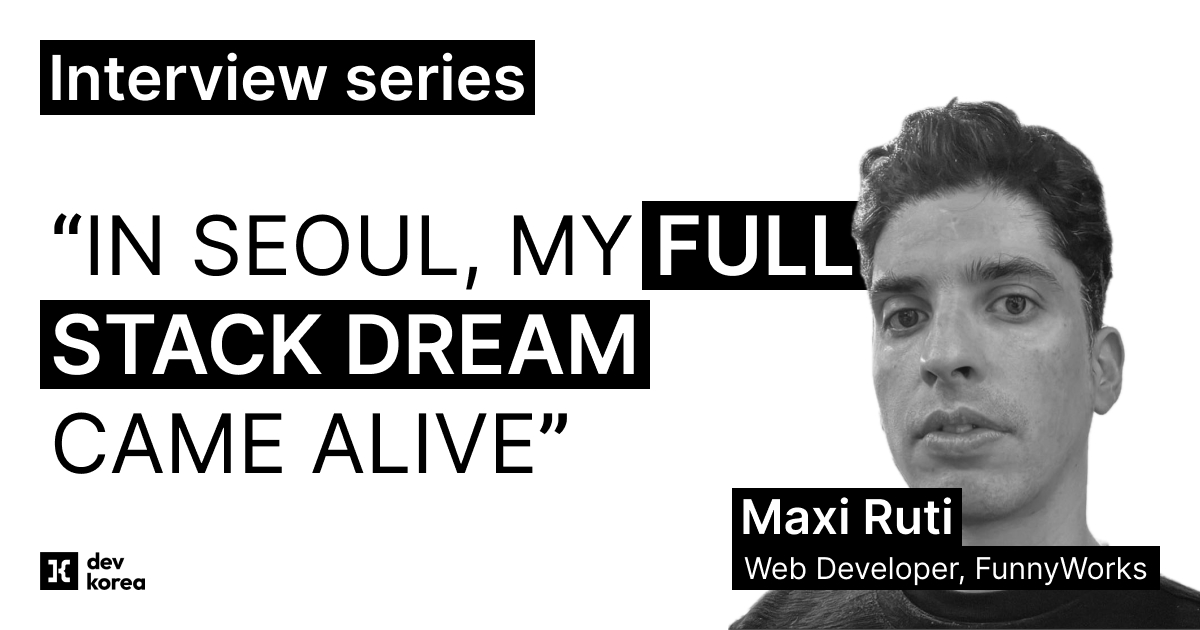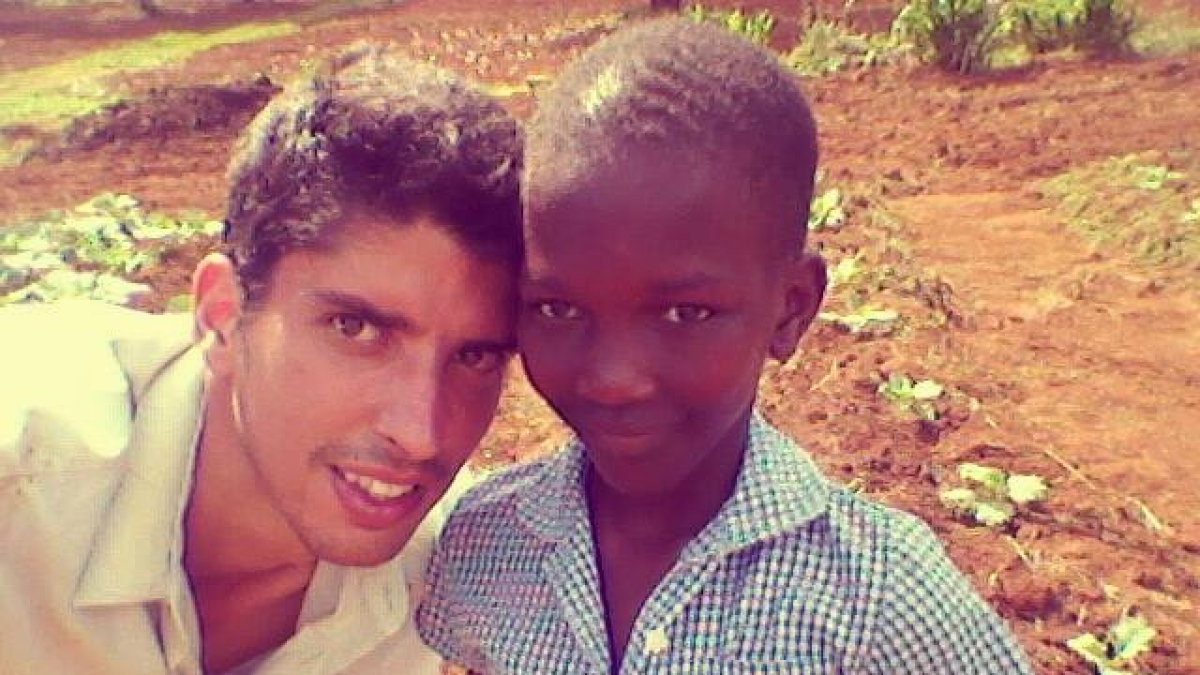
From Argentina to Korea: Max’s journey into tech in Seoul
This is the first in our new series of interviews highlighting English speakers living and working in Korea. We hope you will like this new format 😀.
Meet Maximiliano “Max” Ruti, an Argentinian web developer at FunnyWorks in Seoul. We talked to him about how he went from running a farmers’ project in the Caribbean to building WebGL experiences here, and why he thinks more global talent should give Korea a shot.
Profile snapshot
- Name: Maximiliano Ruti (goes by Max or Maxi)
- Nationality: Argentinian
- Role & Company: Full-Stack Web Developer, FunnyWorks
- Years in Korea: 4
- Visa Status: F-6 (spouse visa)
- Languages: Spanish, English, basic Korean
- Previous homes: St. Vincent & the Grenadines, Malawi, Mexico, Argentina

Background & career
Q. Can you introduce yourself and your role?
Max: I taught myself web development and got hooked on WebGL and AR. At FunnyWorks I handle everything from UI components to backend APIs, so I get to work across the full stack on interactive demos and branded web apps.
Q. What did you do before coming to Korea?
I started at age 21 with an NGO in St. Vincent, then moved to Malawi to run a Farmer Clubs project. That’s where I met my wife. Since then we lived in Mexico and Argentina before settling in Seoul.
Q. Why Korea?
We first visited in 2018 and loved the culture, the tech scene, and yes, the food. We planned to move in 2020 but the pandemic delayed us. By 2021 we finally arrived and it’s been an adventure ever since.
Experience in Korea
Q. What is FunnyWorks all about?
We’re a small creative agency of ten people, founded in 2015. We do branding, web design, 3D prototypes, and game-related projects. I spend a lot of time building Three.js demos and immersive web experiences.
Q. How did you land this job as a foreigner?
This is actually my second Korean company. I was hunting for a design-focused team that used Three.js and found a Reddit thread pointing to dev-korea.com. I thanked the site maintainer on LinkedIn, and through that connection ended up interviewing at FunnyWorks. A week later I got the offer.
Q. What’s a typical day like?
We split time between home and office. Mornings usually start with a team meeting to set goals and review progress. Then I dive into coding—writing shaders or building new UI features. Afternoons might bring client calls or more deep-work sessions.
Q. How does work culture here compare to back home?
I’ve been lucky to join a very supportive team. There’s a strong focus on punctuality and attention to detail, but the vibe at FunnyWorks is as friendly and open as anywhere I’ve worked before.
Q. Do you use Korean at work?
I try, but my technical Korean is still basic. I’ll start in Korean and switch to English if I need to. My teammates are patient and always check I’ve understood, which makes a big difference.
Q. Any challenges adapting?
Besides the language learning, not really. I’ve lived in so many places that adapting quickly has become second nature.
Lifestyle & community
Q. What’s life outside the office like?
I go to the gym most mornings and take evening walks on work-from-home days. My wife and I are vegetarian, so I run a blog about vegan spots in Seoul. Weekends are café hopping or exploring a new neighborhood. I’ve even become a baseball fan—I had no idea how fun a K-League game could be until I experienced the stadium atmosphere.
Q. Has learning Korean helped your daily life?
Definitely. Even knowing simple phrases makes daily errands smoother and helps me feel more connected. Studying just a bit each day really adds up.
Q. What surprised you most about Korean tech culture?
Teams here are eager to try cutting-edge tools. I’ve seen projects adopt new JavaScript frameworks or WebGL libraries almost overnight. The pace of innovation is impressive.
Reflections & advice
Q. Do you see yourself staying in Korea long-term?
Yes. We still have so much to explore here, both personally and professionally.
Q. Tips for tech pros looking at Korea?
Start with Dev Korea for job leads and community. Network early, learn basic Korean, and don’t be shy about sharing your unique background.
Q. How can Korean companies better support internationals?
Clearer career roadmaps and more transparent feedback during hiring would help a lot. Knowing what success looks like keeps everyone on the same page.
Rapid fire
- Favorite Korean food: Bibimbap
- Must-visit in Korea: A live baseball game
- Favorite Korean word: 아이고 (aigoo)
Connect with Max
- Website: https://maxiruti.com
- LinkedIn: https://linkedin.com/in/maxi-ruti
- X (Twitter): https://x.com/MaxCodeJourney
If you want to be next and contribute, send us an email to florian@dev-korea.com.
Ready to explore your next move? Visit Dev Korea to check the latest job openings, or if you’re an employer, post a job and connect with our vibrant community of tech talent eager to contribute to Korea’s innovation ecosystem.